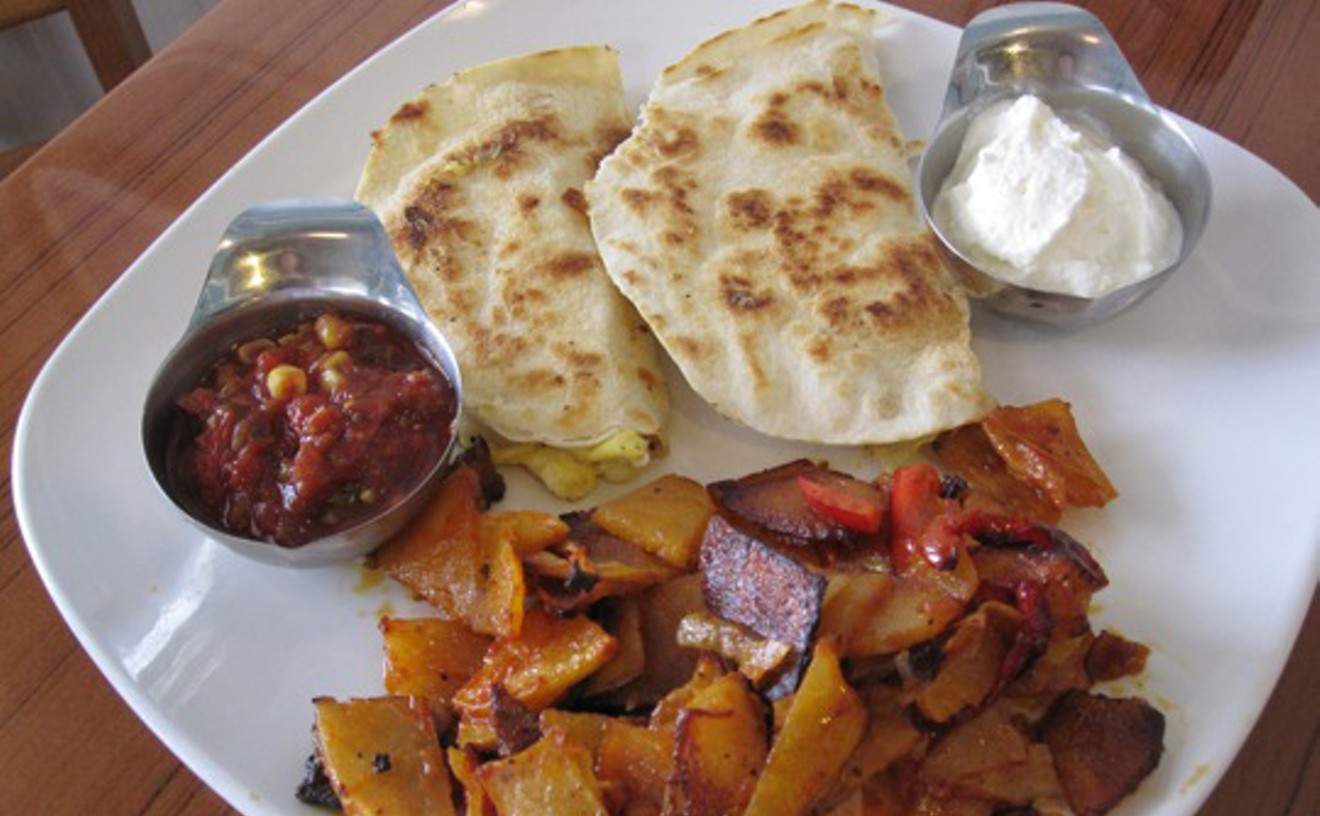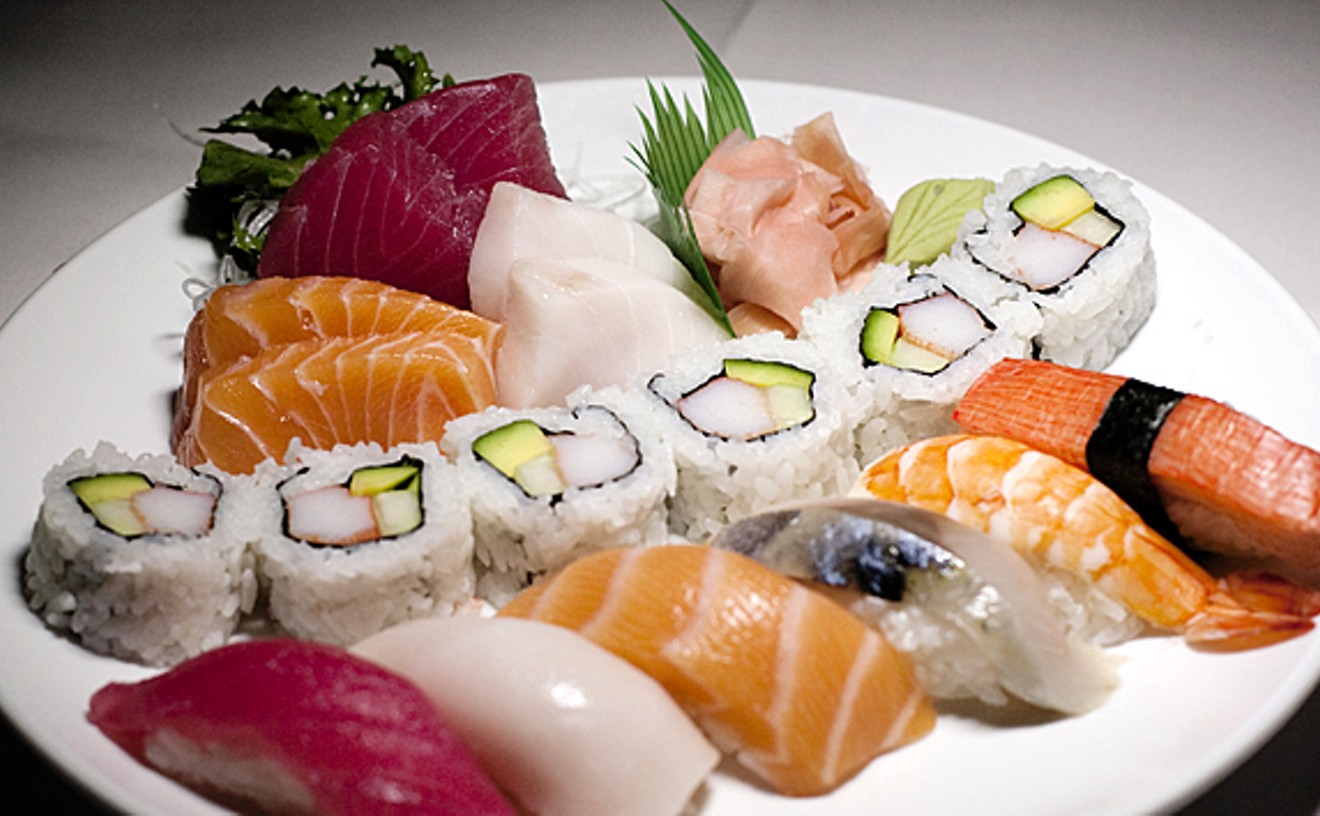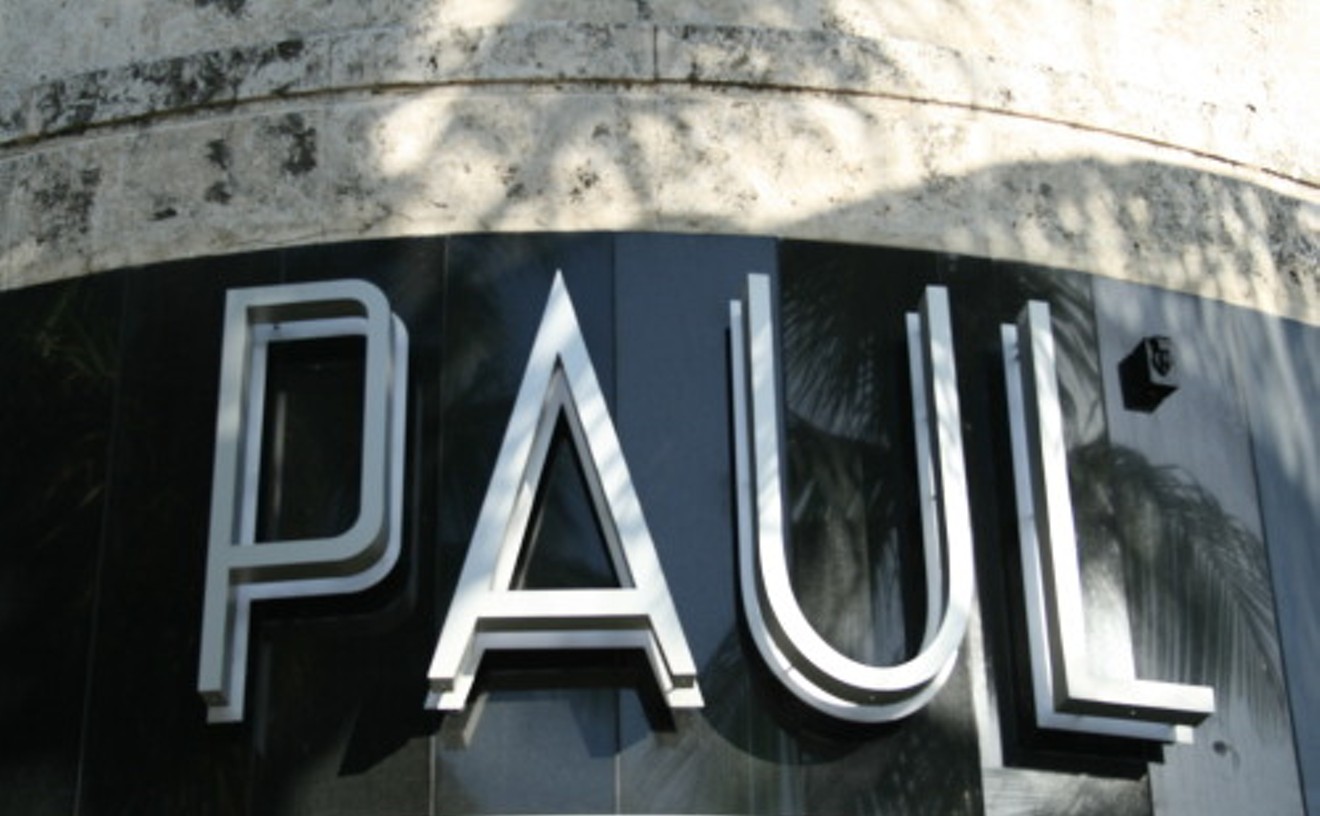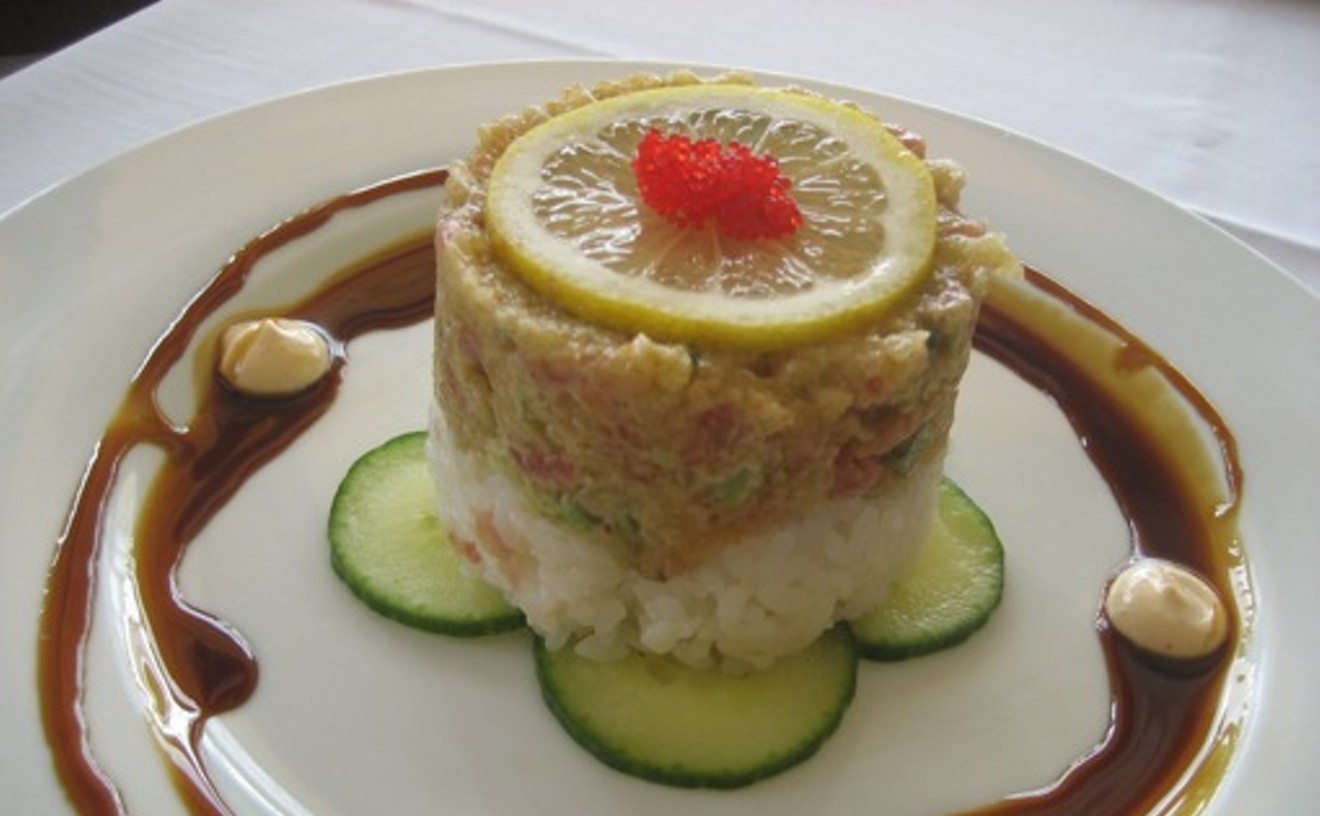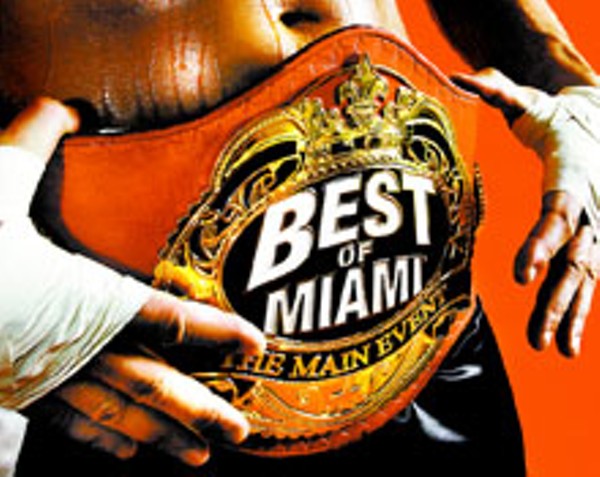
What hamburgers are to Americans, roti is to many Caribbean islanders. In Trinidad and Guyana, roti is considered soul food, and few places outside the islands do it better than Caribbean Delite. This hole-in-the-wall is embedded in a strip mall that amounts to a miniature Caribbean district. Reggae music blasts from the record store down the way, and Jamaicans emerge from the shop next door, carrying grease-stained brown paper bags stuffed with hot beef patties. Caribbean Delite serves up spicy saffron-color curried meats like chicken, beef, goat, and shrimp with a generous dollop of curried potatoes and chickpeas (also eggplant, cabbage, and pumpkin if you come on a Thursday). These dishes -- accompanied by paratha, a scrumptiously soft flatbread also known as buss-up-shut -- are traditionally scooped up by hand. Succulent chickpea-filled doubles cost $1. For a more filling meal, consider a shrimp roti for $7 or feast on curried boneless chicken with paratha roti for $6.50. But roti is not Caribbean Delite's only specialty. It also sells pholourie, fried balls of dough that you dip into zesty mango chutney. For dessert, try some sweet-and-sour tamarind balls, or khurma, sticks of crisp fried dough sprinkled with ginger and sugar. Check out the well-stocked cooler of carbonated beverages, which can be difficult to find in the United States, such as Jamaican favorites grapefruit-flavor Ting, red-orange Kola Champagne, and sorrel, a customary yuletide brew made from crimson blossoms. The glass cabinet at the store's counter contains myriad strange island imports, like mauby, a concentrated concoction made from tree bark; and Milo, a chocolaty drink known and loved throughout the archipelago.


